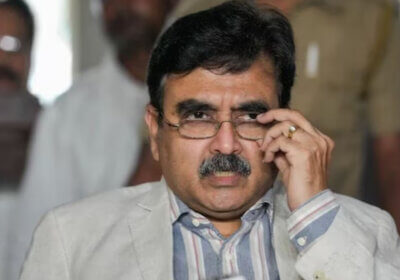Rajasthan State Assembly Elections: A Historical Journey Through Democracy
Rajasthan, the land of kings, not only boasts of a rich cultural heritage but also a vibrant political history. The state has witnessed numerous elections that have played a pivotal role in shaping its democratic landscape. This article delves deep into the annals of Rajasthan’s political history, tracing the evolution of its state assembly elections, from the pre-independence era to the contemporary political scenario.

Rajasthan Assembly Election 2023 | Image Credit India Today
Pre-Independence Era Politics Of The Region
Before independence, Rajasthan was a conglomeration of princely states, each with its own ruler and administrative setup. The concept of state assembly elections, as we know them today, was non-existent. Instead, these princely states had their unique systems of governance, ranging from absolute monarchies to more democratic forms of rule where assemblies or councils advised the rulers or regional kings that ruled different regions such as Marwar, Mewar, Shekhawati region etc.
Post-Independence Period Formation Of State Rajasthan
After India gained independence in 1947, the princely states were integrated into the Indian Union, giving birth to the state of Rajasthan on March 30, 1949. With the formation of the state, the democratic process began to take root. The first Rajasthan assembly election were held in 1952, marking a significant milestone in its political history. The Indian National Congress emerged as the dominant force, forming the inaugural government in the state.
1960s and 1970s: Period of Political Flux
The 1960s and 1970s witnessed significant political developments in Rajasthan. The Rajasthan assembly election held during this period saw intense competition between various political parties, leading to frequent changes in government. The Janata Party’s emergence in the 1970s as a formidable opposition force challenged the Congress’s dominance, creating a more dynamic and competitive political landscape. However the deacades belonged to Indian National Congress.
1980s and 1990s: Era of Coalition Politics
The 1980s and 1990s ushered in the era of coalition politics in Rajasthan. With no single party gaining a clear majority, alliances and coalition governments became the norm. This period also saw the rise of regional parties and leaders, adding new dimensions to the state’s political dynamics. The Bharatiya Janata Party (BJP) gained prominence during this time, emerging as a strong contender to the Congress party.
2000s: BJP’s Second Rise Under Vasundhara Raje
The 2000s marked a turning point in Rajasthan’s political landscape. The BJP, with its pro-development and Hindutva agenda, gained widespread support, leading to the party’s victory in the 2003 state assembly elections. Vasundhara Raje, a dynamic leader, became the Chief Minister, initiating various developmental projects and economic reforms in the state. She came back to power once again in 2013 and became the chief minister of the state for the second time.
Vasundhara Raje became the tallest BJP leader in the state after Lt. Shri Bhairo Singh Shekhawat who after being the chief minister of the state multiple times became the country’s vice president.
2010s: Return of Congress
Since last many decades Rajasthan assembly election is swinging like a pendulum between Congress and BJP as both parties have been forming the government alternatively in the state.
1998 – 2003 Congress govt with Ashok Gehlot as CM
2003 – 2008 BJP govt with Vasundhara Raje as CM
2008 – 2013 Congress govt with Ashok Gehlot as CM
2013 – 2018 BJP govt with Vasundhara Raje as CM
The political pendulum swung again in the 2018 state assembly elections when the Congress party staged a comeback. Riding on anti-incumbency wave and agrarian distress, the Congress won a decisive victory, forming the government under the leadership of Ashok Gehlot. This period was marked by a focus on social welfare schemes, education, and healthcare, bringing a paradigm shift in governance priorities.
Contemporary Scenario With Rajasthan Assembly Election 2023 In Sight
As of the latest available trends and sequence of events, Rajasthan continues to be a battleground for political parties. The state assembly election is expected to be closely contested, with both the BJP and Congress vying for power. Regional parties like that of Hanuman Beniwal and BSP along with independent candidates will also play a significant role, reflecting the diverse political fabric of the state.
The Political Game Of Thrones Of The State
The history of Rajasthan’s state assembly elections is a fascinating saga of political evolution and societal transformation. From the princely states’ era to the contemporary multiparty democracy, the state has traversed a remarkable journey. As Rajasthan moves forward, its electoral landscape will continue to evolve, reflecting the changing aspirations and dreams of its people. Democracy in Rajasthan is not just a political system; it is a vibrant tapestry woven with the threads of history, culture, and the collective will of its people.
The 21st Century Transformation of Rajasthan’s Political Landscape
The political journey of Rajasthan, often referred to as the “Land of Kings,” has seen remarkable changes in the 21st century. The state assembly elections have continued to play a pivotal role in shaping its democratic landscape. In this extended exploration, we delve deeper into the recent history, chief ministers, and major political developments that have defined Rajasthan’s politics in the 21st century.
Early 2000s: BJP’s Ascendancy Beginning Of Vasundhara Era
The 2000s were a defining period for Rajasthan politics. The Bharatiya Janata Party (BJP), under the leadership of Vasundhara Raje, continued to dominate the state’s political landscape. Raje, known for her dynamic leadership, initiated various developmental projects and economic reforms during her tenure as Chief Minister from 2003 to 2008. Her focus on infrastructure development, tourism promotion, and industrial growth brought Rajasthan to the forefront of India’s economic landscape.
The Return of Congress in 2008: Ashok Gehlot’s Leadership
In 2008, Rajasthan witnessed a significant political turnaround. The Indian National Congress, led by Ashok Gehlot, came back to power. Gehlot’s tenure was marked by a renewed focus on social welfare schemes, education, and healthcare. The introduction of initiatives like the “Bhamashah” scheme aimed at empowering women and enhancing financial inclusion showcased the government’s commitment to inclusive development.
2013: BJP’s Second Stint under Vasundhara Raje
The 2013 state assembly elections marked another shift in power as the BJP, under Vasundhara Raje, returned to office. Raje’s second term continued to prioritize infrastructure development and economic reforms. Initiatives like the “Resurgent Rajasthan” summit aimed at attracting investments and boosting industrial growth. The state government’s emphasis on skill development and youth employment also garnered attention.
2018: Congress’ Comeback and Ashok Gehlot’s Return
In 2018, the political pendulum swung once more as the Indian National Congress, led by Ashok Gehlot, made a triumphant return. The elections were marked by anti-incumbency sentiments and agrarian distress, which played a crucial role in the Congress’s victory. Gehlot’s third term as Chief Minister brought back a focus on social welfare programs and healthcare, especially during the challenging times of the COVID-19 pandemic. Social welfare and health insurance for all has been the greatest achievements of the Gehlot led congress govt in the state.
Challenges and the Way Forward in the 21st Century
Rajasthan, like many Indian states, faces a range of challenges in the 21st century. Despite significant progress in areas such as education and healthcare, the state continues to grapple with issues like unemployment, poverty, and infrastructural gaps. The need for sustainable development, improved agricultural practices, and enhanced access to quality education and healthcare services remains paramount.
Rajasthan Assembly Election Has Always Been A Dynamic Political Playground
Rajasthan state assembly elections have evolved into a dynamic contest between the two major political parties, the BJP and the Congress, with each having its own vision for the state’s future. The elections in this century have highlighted the electorate’s desire for development, social welfare, and inclusive growth.
As Rajasthan looks to the future, it will be fascinating to observe how the state’s political landscape continues to evolve and how its leaders navigate the challenges and opportunities of the 21st century. One thing is certain: Rajasthan’s rich cultural heritage and vibrant democracy will continue to shape its destiny, making it an integral part of India’s political tapestry.
Also Read | Rajasthan Assembly elections: EC visiting Jaipur for three days starting today























Pingback: Rajasthan Assembly Elections 2023 Series : Rajasthan Chief Ministers List And Tenures
Pingback: Assembly Elections 2023: EC announced dates for five states' elections
Pingback: Rajasthan Assembly Elections 2023 : Congress Manifesto Released With 7 Guarantees